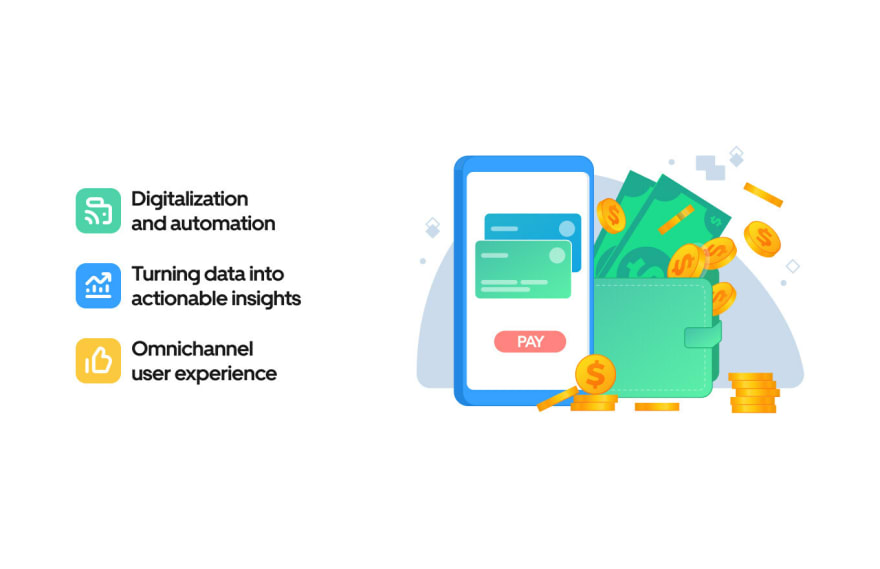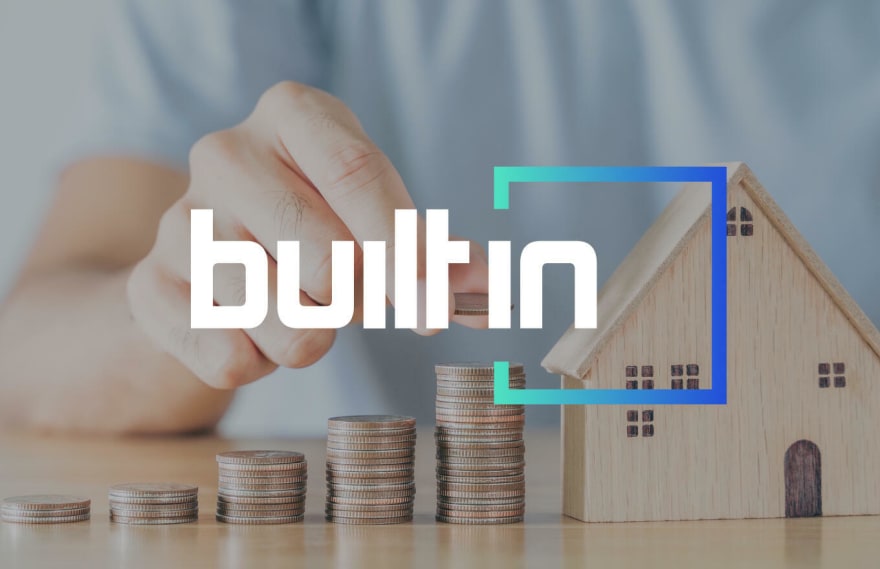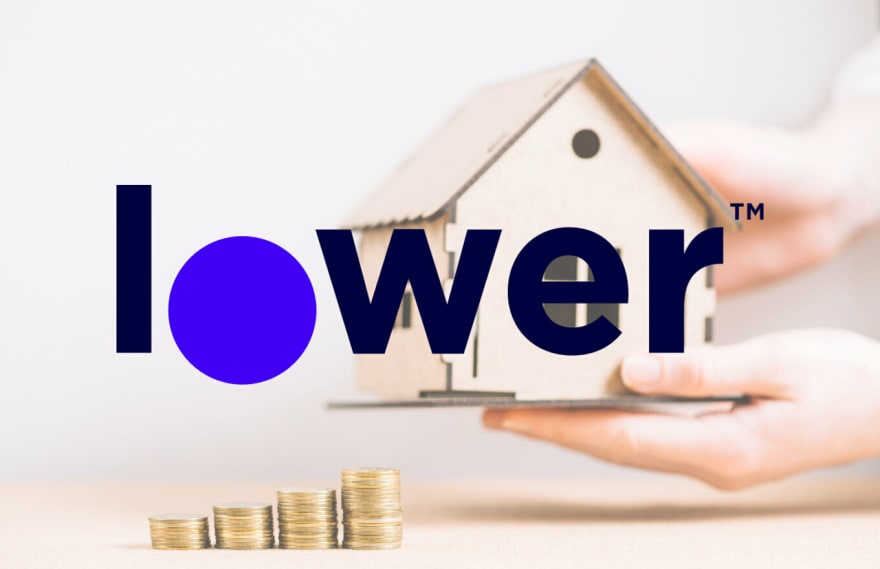The original article was written by SoftFormance: https://www.softformance.com/blog/top-us-lending-mortgage-startups/
The lending market is booming these days. In fact, mortgages make up the largest part of the US lending market, with a total debt of$9.2 trillion.
That’s why it’s no surprise that more and more lending fintech startups are entering the market.
So why not use this brilliant opportunity and help people get mortgages easier?
These brand new mortgage fintech companies are slowly but surely replacing traditional banks.
They help people not to worry about huge interest rates, slow application processes, and piles of documents.
They offer a more accessible, fast, and convenient process of taking a loan, be it for real estate, university, or buying a car.
If you have ever wanted to successfully enter the mortgage lending market and create your startup when the industry is on the rise – it’s perfect timing.
In this piece, we’ll talk in detail about the current trends in the market and the challenges of creating a lending startup. Moreover, we have taken a deep dive and put together a list of the 23 most successful US mortgage lending startups.
So if you want to launch your online lending platform – keep on reading.
Why online lending?
As of 2021, the total American mortgage debt was $10.44 trillion. For the majority of Americans, housing is their biggest expense. They pay a larger part of their monthly income to rent or mortgage.
Those Americans who have a mortgage pay a median monthly payment of $1,595. Mortgages are also called unsecured personal loans, and they have been traditionally offered by banks and other financial institutions. Up until the last couple of years.
In 2007, fintech entered the market, but it wasn’t until 2013 that much of the growth in personal lending was driven by those online platforms.
Now, people who want to take personal loans are free to choose between traditional banking or fintech companies.
Here are a few reasons why people choose fintech mortgage startups instead of traditional players like banks or credit unions:

Lower interest rates
According to the research, fintech lending firms deliver lower interest rates compared with traditional banks. One of the reasons is that they do not need to comply with the same strict set of regulations and are more flexible.
No human factor
The traditional mortgage industry is built on communication with people, so there’s a strong human factor. Sometimes, their decisions can be biased, which can influence whether a client receives a loan at all. With lending startups, there’s no human factor – everything is automated, and a person can submit their data without talking to anyone.
Accessibility
You can apply for a loan anywhere, anytime; there’s no need to adjust your schedule or commute to a bank. With online lending platforms, everything is always at hand.
Convenience
Let’s be honest – no one likes to fill in piles of documents and drown in them when applying for a loan. Online mortgage fintech companies allow clients to forget about this issue. Instead, they can fill in a simple form online.
Speed
The application process in traditional banks takes a lot of time. When a client requests a loan online, they can check its status anytime, receive needed information instantly, and save time standing in lines in a bank.
Trends in the market
If you want to enter the fintech lending market successfully, you need to be aware of the current trends.
Learning about them can help you launch a platform that will both be competitive on the market and offer people an effective way of taking loans.

Digitalization and automation
One of the main trends in the lending market is full automation and digitalization of the entire process.
Having a lending platform on your smartphone available 24/7 is a huge benefit for customers, but this trend also brings a lot of benefits for lenders.
First of all, digitalization and automation reduce operating costs. There’s no need to waste money on office rent, facilities, and hiring an in-house team of experts.
If you decide to launch a lending startup, you will definitely optimize your budget and save costs.
Secondly, automation gets rid of human error. Everyone makes mistakes, and sometimes that can be damaging to the process or slow it down.
With automation, you ensure that there are little to no mistakes. This way, your employees can focus on other tasks and not stress about making mistakes during some routine activities.
Finally, an automated online mortgage lending platform makes the decision-making process faster, and clients’ requests are processed more swiftly.
The key here is to build powerful software that would be able to handle a big volume of data processing. If your platform has great software, a user-friendly, and a highly-functional interface, the lending process will be super fast and easy.
Omnichannel user experience
Did you know that 67% of people who have an existing home loan would feel comfortable completing a loan application on a laptop or desktop computer? Only 29% would prefer using a smartphone.
That is why it is so important to ensure an omnichannel user experience and deliver an efficient lending process for your clients.
If you choose to stick to only one platform, you will start losing customers in other places sooner or later. When building a lending app, make sure to cover as many channels as possible because it enhances the user experience and makes the lending process as comfortable as possible for them.
Turning data into actionable insights
The lending process is all about collecting customers’ data. In traditional baking, people fill in piles of documents and forms when applying for a mortgage. Frequently, this process can be very time-consuming.
With online mortgage platforms, verification of customers’ data speeds up, and it allows the lender to close more deals in a shorter period of time.
Moreover, it develops customer loyalty, and your clients will stay with you longer and will more likely recommend your platform to others.
Collecting all the data is important, but you also need to analyze it properly.
To do it right, you need artificial intelligence tools with a self-learning system. AI will help you analyze customers’ data quickly, effectively, and with no errors. As a result, your lending platform will become more competitive in the market.
Top 23 Lending Startups
We have already talked about the reasons to launch your online mortgage company and what trends to follow to be competitive in the market. Now, it’s high time for an overview of the top 30 most successful mortgage lending startups in the US.
SoFi
Capital raised: $2.5 billion
Services: Personal loans, student loans, home loans, investments, auto loan refinancing, and private student loans.
SoFi is a lending platform that embraces diversity and issues unbiased loans to all borrowers, even if they have low credit scores. They offer exclusive member benefits at no cost as well as flexible down payments from 10% to 50%.
- Reali
Capital raised: $39 million
Services: Reali has a team of real estate agents who will help customers sell or buy a home and advocate on their behalf. Customers can choose among the list of real estate agents and find the perfect fit for their needs.
Reali also offers almost instant loan approvals for people who have found a perfect house but lack money. While for most banks, it can take up to a month to approve a loan, Reali does it within hours.
- Lending Tree
Capital raised: The company invests in other companies.
Services: Lending Tree is a service that allows customers to compare various loans offered by other companies and choose the most suitable one for them. With Lending Tree, people can submit their personal details to potential lenders and compare them.
- Rocket Mortgage by Quicken Loans
Capital raised: Not specified
Services: The company’s main goal is to make the process of applying for a mortgage as fast and easy as possible. That’s why there’s both a mobile and a web version available, and Rocket Mortgage offers various types of loans: home loans, mortgages, FHA loans, and jumbo loans.
- Better.com
Capital raised: $205 million
Services: The company’s main goal is to make homeownership simple, fast, and more affordable. They offer $0 lender fees and commissions, 24×7 support, and quote in less than 3 minutes.
- Divvy
Capital raised: $180 million
Servies: Divvy allows its customers to apply for loans in minutes. There’s also an option to allocate a fixed sum from their rent payments towards a downpayment. This option allows people to start saving to buy a house they already live in.
- Flyhomes
Capital raised: $160 million
Services: Real estate brokerage. Flyhomes offer every customer an advisor who will be on their side and offer friendly expert advice. Moreover, the platform ensures that people know how much they will borrow before they start shopping for a home.
- Homeward
Capital raised: $25 million
Services: Homeward is similar to Flyhomes. This platform helps its customers to buy a new house before they sell their previous one. People can buy with cash, negotiate the terms and conditions of the offers, and work with an agent they trust.
- Ribbon
Capital raised: $555 million
Services: The service helps buyers, sellers, agents, and loan officers with cash-backed solutions. They offer a possibility to turn an offer to all cash. In other words, they empower homeowners to choose a new house before they sell their previous one, and they are provided with guaranteed cash. Ribbon also can step in and ensure that the client closes the deal on their house no matter what, even last second.
- PeerIQ
Capital raised: $20.5 million
Services: This is not a lending platform. PeerIQ positions itself as a SaaS company that aims to deliver transparency and efficiency to the consumer credit ecosystem. The company delivers analytic tools across the entire funding chain to help improve liquidity and manage risk.
- Lower
Capital raised: $100 million
Services: Lower offers clients the ability to lower their monthly payments, change the terms if needed, and take cash out to pay off debt. With the Lower app, people can save up for their future house, set their goals, and build credit. Furthermore, Lower allows to earn up to $500 HomeCash match along the way – a great strategy to attract new customers.
- SoLo Funds
Capital raised: $13 million
Services: SoLo Funds is a company for underserved communities, and the team works to improve its members’ financial health. SoLo connects lenders and borrowers and even allows people to help others during financial hardship.
- Planswell
Capital raised: $7 million
Services: Planswell provides financial planning and advice for everyone. The platform’s engine predicts what people’s savings will be at a certain age and tallies clients’ debts, and finds a perfect way to consolidate them to the lowest interest rate.
- Cross River Bank
Capital raised: $620 million
Services: Cross River positions itself as a combination of banking and technology. It merges the expertise of a traditional bank with innovation and modern technology. The company provides consumers and businesses with various loan products, debit programs, savings accounts, and others.
- Blend
Capital raised: $75 million
Services: Blend’s main mission is to help more people have access to housing and financial services. The company offers its software to Minority Depository Institutions and Community Development Financial Institutions at no cost. Moreover, they made their digital mortgage process easy for everyone with an intuitive application.
- Cloudvirga
Capital raised: $77.5 million
Services: It is an intelligent digital mortgage lending platform. The entire application process is automated. It takes only 10 minutes to create underwriter-ready loan files, according to the company’s website. The platform reduces the time to close loans and provides a more intuitive and comfortable customer experience.
- Lender Price
Capital raised: $14.5 million
Services: Lender Price works with more than 150 lenders and supports 50,000 mortgage products. The company offers new solutions to traditional banks and lenders, replacing outdated systems with new lending strategies. Their products include enterprise pricing engine, digital lending, broker marketplace, pricing analytics, and flex underwriting engine.
- Kiavi
Capital raised: Not mentioned
Services: Flexible, short-term bridge loans for those investing in real estate. Kiavi offers its customers short-term mortgages with investment rates starting at 6.5%. Their long-term financing is designed to help investors, and Kiavi offers rental income with rates as low as 5.750%.
- Point
Capital raised: $8.4 million
Services: Point offers homeowners Home Equity Investments without income requirements, monthly payments, and a need for perfect credit. Another service is the Home Equity Line of Credit – a flexible and affordable line of credit. For those buying a home, Point provides clients with $35,000-$350,000 cash.
- Guaranteed Rate
Capital raised: Not specified
Services: The minimum credit score on FHA loans is lower than average, which is helpful for those who are borrowing for the first time and don’t have a credit history. Preapproval takes one to two days, and the minimum credit score requirements differ depending on the mortgage.
- Ally
Capital raised: $50 million
Services: Ally offers closing fees from 2% to 5% of the loan, and the application process takes up to 3 minutes. For first-time homebuyers, Ally offers a special program that requires a minimum credit score of 620, 36 days to close the deal, and two types of loan offerings (conventional and jumbo).
- loanDepot
Capital raised: $181.9 million
Services: It is one of the biggest US non-bank lenders. loanDepot states that due to their innovative fintech solution, there is no need for home appraisal. Their customers also have zero refinancing fees if their property was initially financed by loanDepot.
- PNC Bank
Capital raised: $600 million
Services: PNC offers different types of mortgages for clients except for home equity line of credit and home equity loans. For low-income and moderate-income borrowers, PNC offers a $1,500 grant. Apart from the online application process and assistance, people can also set an in-person meeting with an agent for additional guidance.
Challenges you can face
Launching a lending startup is not a smooth process, unfortunately, and you can face several challenges that most lending platforms do. It’s better to be prepared, so let’s dive in:
Low mortgage rates
Unfortunately, mortgage rates are expected to remain at the same low levels as in previous years, when they averaged around 4% APR (an annual percentage rate).
While this is great news for clients, online mortgage lenders see this news as rather bad news.
Fewer homes for sale
While the demand for homes is rising, the number of houses for sale doesn’t. There are a few reasons for this shortage of real estate options.
Firstly, many homeowners don’t want to sell their property. It’s easier to rent it and earn passive income monthly.
Secondly, due to higher prices, people tend to live in the same house longer. According to the National Association of Realtors, people live in one place for at least ten years now, compared to 6 or 7 years before.
Finally, high regulatory spending makes it too expensive to build new houses. In fact, according to the National Association of Home Builders, the regulation imposed by all levels of government accounts for 32.1% of the costs of an average house.
Higher competition due to FHA loans
An FHA loan, or a Federal Housing Administration loan, is a home mortgage that is insured by the government and issued by a bank and approved by an agency.
Since this type of loan requires a lower minimum down payment, it is a strong competitor for fintech lending startups. When there are more options to choose from, lending startups may be at a disadvantage.
Wrapping up
The demand for lending platforms is constantly growing as more and more people want to sell or buy a house. That’s why the mortgage market is on the rise right now, and it won’t change any time soon.
If you want to use this opportunity and launch a lending startup, keep in mind that most people want the lending process to be fast, easy, and as comfortable as possible.
With a great team of experts, you’ll be able to create an app that will be both competitive on the market and will help multiple people buy their dream homes.
Our SoftFormance team has successfully completed 200+ projects from A to Z and helping you launch a mortgage lending platform won’t be a problem for us.
Contact us if you want to learn more about the process or if you are ready to start working with us!






























Top comments (1)
This year I observed a growth in the business market, especially in the lending market. I didn’t know so much information about it. Still, there is the possibility when people cannot afford something, they can lend for that and give money later.
My brother explained how that works and why it is so popular because he works in this domain. So they told me about using Mortgage Advice London, so is real estate agent it is really very acceptable to lend money for buying a flat, add there are a lot of people who are satisfied by this method because they can afford a flat faster.